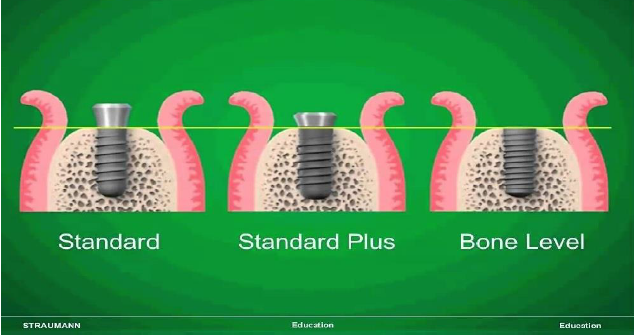Dr. Todd Britten is happy to announce that we are using Platelet
Concentrates (L-PRF, or Leukocyte-Platelet Rich Fibrin) to promote healing in
dental procedures.
Concentrated blood has been used in hospitals for a long time to
accelerate healing. Leukocyte Rich Platelet Rich Fibrin (L- PRF) is a
by-product of a patient’s own blood that can help healing after dental
procedures such as a tooth extraction, as well as promote healing around bone
or tissue grafts and dental implants.
L-PRF™ is a 3-D autogenous combination of Platelet Rich Fibrin
derived from a patient’s blood. First, it is determined if patient is a
candidate for L-PRF treatment. If so, blood is then drawn in our office
from a patient’s arm. The blood is then immediately placed into a centrifuge to
separate the blood into layers. This thin, compressed layer of platelet
rich fibrin is strong, pliable and even suitable for suturing. This natural fibrin
network is rich in platelets, growth factors (PDGF, BMP, VEGF) and cytokines
derived from the blood platelets and white blood cells called leukocytes. These
proteins promote rapid healing, especially during the critical first seven days
after they are placed.
Growth factors are triggered and released and clot formation is
stimulated by blood platelets, fibrin and growth factors to help heal
wounds. Growth factors stimulate stem cells to produce new host tissue
quickly, making L-PRF effective in the healing process.
Advantages of using L-PRF also include lower infection risk
after surgical dental procedures by sealing a treatment wound from bacteria
after treatment. Saturation of the surgical area, bone graft material
and/or dental implant helps increase tissue formation due to its growth factors
such as BMP, VEGF and PDGF, and this, in turn, results in faster gum and bone
regeneration. Speedier healing decreases the risk of later infections,
complications, and discomfort. The use of this technology has been shown
to lower the chance of dry sockets after extraction, which can be very painful.
L-PRF treatments are often used for greater success for
necessary procedures for dental implant placement, including socket bone
grafts, sinus lifts, ridge augmentation, correcting peri-implantitis, block
bone grafts and extraction sites prior to implant placement.L-PRF technology is
used to quicken the healing process and is completely safe. Disease
transmission is not a factor since blood is drawn from a patient’s own
body. Most patients report a greater degree of comfort during healing
even immediately after their procedure. The amount of blood needed is minimal
and can be collected easily.
If you have any questions about treatment with platelet rich
fibrin/plasma or would like to find out if you are a candidate and can benefit
from this treatment, please contact us at 727-586-2681.
Healing From Within With L-PRF
·
Only requires a small
blood sample – Virtually painless!
·
100% natural, 100% you
- Biocompatible.
·
No additives, chemicals,
or foreign substances – Lowered risk for complications
·
Contains your unique
healing properties – Promotes Recovery!
·
Simple procedure – FDA
Cleared
Tooth loss and damage to the jaw bone and tissues are often
challenging for your dentist during oral surgery or implant placement. Without
enough support in the jawbone, dental implants cannot be immediately stabilized
and tissue healing can be a long process. The solution to these and other
difficult situations is a new Platelet Therapy created from your own blood.
Leukocyte –Platelet Rich Fibrin (L-PRF) changes all the rules as it promotes
healing and bone growth from within your own body. Unlike other treatments that
use artificial components, Platelet Therapy with L-PRF uses only your own
blood. With a simple blood draw and an advanced technology protocol, L-PRF is
individually made for you – from you. The end results are improved healing
response and significantly less recovery time.
L-PRF™ is basically a bioactive “band-aid” that is created from
your own blood and then placed in your surgery sites to promote healing. A
sample of your blood is collected in a tube, just as it would be for a blood
test. The dentist then uses the unique IntraSpin™ System to separate and concentrate
certain important cells and active proteins by spinning your own blood in a
dedicated centrifuge. After a fast preparation the bioactive clot, created just
from your own blood, is now ideal for your procedure.
After your L-PRF is
created, it can be placed directly in/on surgical sites to immediately promote
healing. When placed in surgery sites, L-PRF releases your body’s own natural
healing proteins, creating a more efficient network for cells to enhance the
healing process. Depending on your situation, the doctor may supplement your
L-PRF clot with different biomaterials customized for your needs. For patients
with significant bone loss, a combination of L-PRF and bone growth material may
also be used to promote natural bone regeneration.
The therapy is 100% natural and additive-free. Natural growth
factors present in your body are concentrated using L-PRF. Your own
concentrated platelets and other key blood cells and their unique healing
abilities are simply re-introduced at the site of your surgical procedure. As a
result, your own body releases powerful healing proteins, and creates a
scaffold for healing.
If you are interested in finding out more about L-PRF, give our
office a call and we will be happy to set up an appointment to discuss using
L-PRF in your next procedure.
Heal Quicker Using L-PRF, Make An Appointment! www.brittenperio.com




















